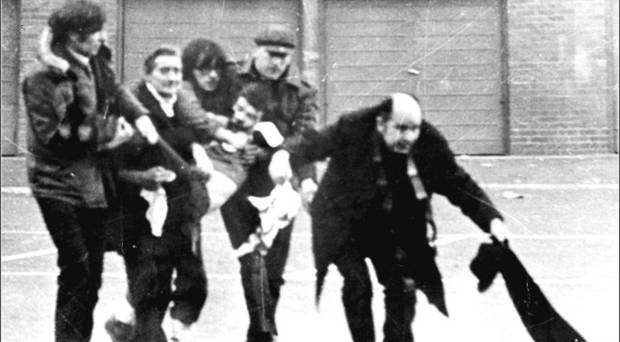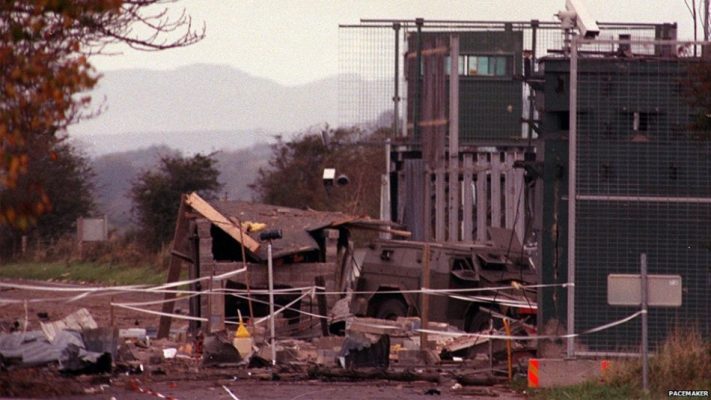
Bishop Edward Daly carryinig a white handkerchief on Bloody Sunday in January 1972
The British Government also intends to commission an official history relating to the 30 years of violence.
The legislation will establish a new body for information recovery.
It will conduct investigations and consider immunity from prosecution for perpetrators who co-operate.
In last week’s Queen’s speech, the government announced it was changing its original proposal from last July, which would have ended all Troubles-era prosecutions – effectively an across the board amnesty.
Instead, those involved in killings will have to earn immunity by co-operating with the new Independent Commission for Reconciliation and Information Recovery (ICRIR).
Failure to do so leaves the door open to prosecution.
The ICRIR will have a panel of commissioners appointed by the government, including a chief commissioner of “high judicial standing”.
There will also be a commissioner of investigations.
The ICRIR will provide reports into killings, “providing answers for families”, and it will have powers to compel witnesses to come forward.
The government said what is proposed “complies fully” with international human rights obligations, but some victims’ families are already geared up to take it to judicial challenge.
The legislation will also prevent future inquests and civil actions related to the Troubles.
Civil claims which already existed on or before the day of the bill’s introduction will be allowed to continue, as will inquests which have reached substantive hearing stage a year after the bill, or by the time the ICRIR becomes operational.
British Secretary of State Brandon Lewis said the NI Troubles (Legacy and Reconciliation) Bill will help society look forward.
“The current system is failing; it is delivering neither truth nor justice for the vast majority of families,” he said.
“It is letting down victims and veterans alike.

British Army checkpoint at Buncrana Road Derry blown up in October 1990 by IRA ‘human bomb’ which claimed the life of Patsy Gillespie who was strapped into bomb-laden vehicle
“A robust and independent investigations process will be at the heart of this approach, supported by an ambitious and comprehensive oral history programme that will allow people to tell their stories and share their experiences,” Mr Lewis continued.
The secretary of state also announced the government’s intention to commission an official history relating to the Troubles, conducted by independent historians.
Underpinned by “unprecedented access to the UK documentary record”, it said this will provide an in-depth examination of the “government’s policy towards Northern Ireland during the conflict”.
The government has previously indicated that the legacy legislation will not be rushed through parliament under accelerated passage.
It could take many months to become law.
Victims’ groups in the North of Ireland have criticised the legislation, questioning the quality of investigations which are envisaged, as well as conditional amnesties.
Tags:




